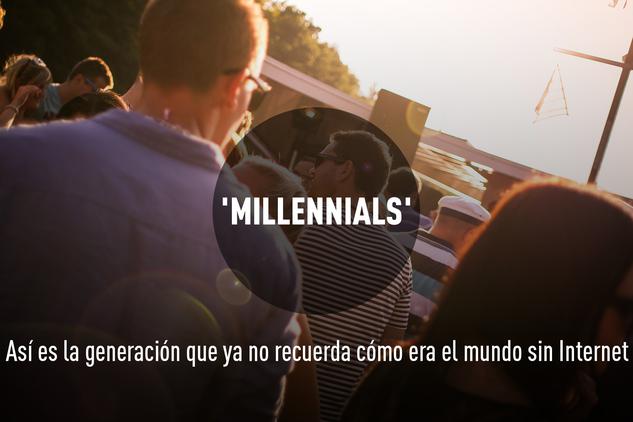Home → luxury bag → South Korean millenn...
South Korean millennials say their lives aren't all that different from 'Squid Game': They face skyrocketing debt, rent they can't afford and dead-end jobs
When Kim Keunha first moved to Seoul 8 years ago, her favorite place in the city was a place near Mapo Bridge. At 19, he was drawn to the bright lights of the South Korean capital, a long way from his hometown of Andong, a city in the southern province of Gyeongsang. Kim, who came to Seoul to try to make it as a tattoo artist, used to wander the bridge, sometimes homesick, more often cold and hungry.
Eight years later, the Mapo Bridge has taken on a very different meaning for Kim. In the past decade, the bridge has become a suicide hotspot, attracting the most desperate people, often trapped by debt, to plunge into the waters of the Han River to their death.
For Kim, it has become a reminder of unfulfilled dreams. The biggest problem for him now, however, is a debt of about 40,000 dollars (about 35,000 euros) that he accumulated during his stay in Seoul.
"I consider myself lucky to have managed to keep my debt under $50,000," Kim says, showing Business Insider his latest bank statements. "I am very aware of the financial problems I have right now, but there is very little I can do to change my situation."
In 2021, the total amount of debt accumulated by South Koreans — more than 1.5 trillion dollars (about 1.3 billion euros) — rivaled the country's GDP of 1.63 trillion dollars, about 1.37 billion euros. euros). A 2018 survey by the Korean think tank Seoul Institute found that Koreans have about $44,000 of debt per household.
That's a lot, considering that Korea's gross national income (GNI) per capita was just $33,790 in 2019, or less than €30,000, according to the World Bank.
Kim's experiences reflect the unforgiving realities of life for some young South Koreans. Stuck in dead-end jobs, with huge debts to pay off and no real means of buying a home, it's no wonder these South Korean millennials think of Netflix's hit drama The Squid Game as a bleak reflection of their own experiences. .
"If someone told me that right now you can risk your life to get out of debt and become a billionaire, I would do it without hesitation," says Kim. "Although if I'm really honest, the game masters might think that my life probably isn't worth that much."
Young South Koreans are facing an unprecedented debt crisis that is fast coming to define their generation
Nora Carol PhotographyThe Squid Game tells the story of a group of 456 South Koreans down on their luck in life who, faced with crushing debt, are summoned to participate in a series of deadly children's games in a bid to win a prize of 45.6 billion Korean won. which is equivalent to about 33 million euros.
For people like Kim, 33 million euros is an astronomical sum for which he says he "would die".
After earning little money as a tattoo professional, Kim has worked his way through all kinds of jobs over the past 5 years, from being a bouncer at a nightclub in the university town of Hongdae, to later working extra shifts as a waiter at a local of barbecues in Sinchon.
Now, Kim is trying to make ends meet by working part-time at a grocery store, having been laid off from restaurant and nightclub jobs due to the pandemic.
Clothes, video games, memes, fans on Instagram... The success of 'The Squid Game' goes far beyond the 111 million people who, according to Netflix, have seen the series
Kim, who got 4 credit cards approved when he was still employed and had 2 jobs in 2019, now struggles to pay the minimum amount on each card each month. His payments vary depending on how much he can squeeze out of the salary from his job at the store, but he tries to make a payment of around 240 to 300 euros a month on each card. However, last year he relied even more on credit cards during an 8-month long period of unemployment and he saw the little progress he had made in paying off his debt evaporate.
In South Korea it is easy to get credit even for people with less income. The country experienced a credit boom after the 1997 Asian financial crisis, when the South Korean government granted tax breaks on credit card payments to boost spending. Over time it snowballed and has made millennials a trigger-happy generation when it comes to pulling out their credit card to spend money.
In 2019, the average South Korean was estimated to have around 4 credit cards, with credit card usage accounting for around 70% of private spending that year. Currently, for example, it is possible to get "loans for the unemployed" through apps. A man told the South Korean newspaper Kyunghyang Shinmun that he was able to get about 3,000 dollars of credit (about 2,500 euros) in 5 minutes, with the promise of an interest rate of 0.01% for a limited time.
"When your salary does not cover your basic needs, you have no choice but to pay for things in advance with a credit card. Sometimes, I still depend on credit cards to pay for food and transportation costs," Kim tells Business Insider.
Middle-class wage earners are also victims of South Korea's credit crunch
Jung Yeon-je / AFP via Getty ImagesThis debt crisis is not just affecting people with lower incomes, like Kim, who are struggling to find a stable, well-paying job to pay off their loans. Those in regular, paid employment are also struggling to pay off the large amount of debt they have been accumulating.
Noh Eun-woo, 25, a sales executive at a beauty store in downtown Seoul's Edae shopping district, tells Business Insider that she owes just over €10,000 on her credit card bills, something which he considers a "low amount".
"I know people who owe between 70,000 and 85,000 euros. A close friend reached the limit of 5 credit cards," she says Noh. Her debt, she explains, started out in the "manageable" range of about $1,000 to $2,000, but after $200 it started getting bigger and bigger. He explains that his debt, which started out as "manageable" between 1,000 and 2,000 euros, increased considerably in 2020. This is because his income, linked to the commissions he obtained from the sale of makeup products, was considerably affected when the customers reduced the purchase of makeup and beauty products during the pandemic.
Noh confesses that she keeps splurging on some fancy bag every 3 months, but she optimistically reckons that it will take her 2-3 years to pay off her debts. "Sales are picking up now, so it's not that big of a deal. But it's true I won't have any cash," he says, admitting he has a financial cushion of 4-6 months before he's "close to starving and homeless".
This is how millennials around 40 years old are: they earn 2,000 euros a month, live worse than their parents and are known as "nursing homes"
Sam Kyungmoon Son, an adjunct professor at Kyungwoon University and an independent consultant at management consulting company Visionwise LLC, tells Business Insider that the measures being taken by the Korean government, such as imposing limits on loans, are a step forward. in the right direction. However, Son stresses that it is only the first of many steps to address the root of the debt crisis.
"Loan limits, if combined with other measures like safety nets for vulnerable people, could help slow the pace of the debt snowball," explains Son.
However, he adds that personal debt is likely to continue to plague millennials.
Lee Jin-man/AP Photo"Seeing loan sharks demanding organs if people don't have cash to pay off their loans is an exaggeration. But the current situation, where heavily indebted young people are forced to turn to credit to make purchases beyond their means , it's a very real problem," emphasizes Son.
Son adds that it's not uncommon for bank-shunned millennials to seek out smaller, loan sharking financial institutions that can charge astronomical interest rates.
In addition, he points out that the trend of borrowing to invest, known in South Korea as bittoo, could be part of the problem, with millennials taking out loans to, for example, invest in cryptocurrencies, lured by the promise of high returns. these assets.
"They are fully aware of the risks, but they do it anyway," Son laments. "They see their friends succeed with a lucky investment and think they can too, but it doesn't always work out."
What you need to know to be informed
Do you like what you read?
Start your day knowing what executives from the world's leading companies think and worry about with a selection of stories sent by Business Insider Spain first thing in the morning.
Receive the newsletter
For many young South Koreans, credit cards and quick loans are seen as "the easiest way to survive," adds Son. "You might think it's convenient to pay up front and spread the cost over the next 2 or 3 years, while hoping to get a good job to pay off all the debt in one fell swoop," he says.
Son adds that easy credit and prepayment plans allow millennials to splurge on luxury items. It is common for young South Koreans to splurge on brand-name items to the point of falling into debt, a trend that has been exacerbated by "revenge spending" during the pandemic, the Korean newspaper JoongAng Daily reported.
“This is how the debt of young South Koreans is increasing, which is aggravated by the cost of living in the cities, the debt that loans to study suppose and, sometimes, financial irresponsibility,” says Son.
"It's good that Squidward is getting so much attention," she adds. "Maybe people will learn something from her and realize that those characters could very well be them."
Many Korean millennials live in micro-apartments that are only 13 m2
Allan Baxter/Getty ImagesMany Korean millennials live in so-called goshiwons, single-room accommodations consisting of a bed and a table. These basic accommodations were initially built in university towns for students preparing for exams to live in for a month or two, but have since become the only accommodation option many millennials can afford.
Hwang Tae-ho, 28, an aspiring musician who used to be a waiter at a club in the Hongik University area, lives in one of these goshiwon, which he estimates to be about 3 square meters. Hwang can't afford a conventional house because he doesn't have enough savings to pay the wolse, a Korean term for the down payment needed to secure a rental agreement. This is a unique rental system in South Korea, in which tenants give their landlords about a year's rent in advance, then make small monthly payments for the rest of their stay.
"I deliver packages and work 2 days a week at a coffee shop, barely making ends meet for rent and food," Hwang told Business Insider. "It amuses me that foreigners regard the dirty homes and neighborhoods seen in 'Parasite' and 'Squidward' as unique, or react to them as if they have discovered a new world. A lot of people like me live in places like this "
Hwang is right. About a fifth of single-person households in Seoul live in spaces smaller than 14 m². The Seoul Institute, the capital's official think tank, also estimates that a third of single-person households live in banjiha (or partially underground) basement apartments like the one in the movie Parasite or in goshiwon-style lodging buildings.
Hwang tells Business Insider that he, too, is heavily in debt, as he has racked up about $7,000 in unpaid credit card bills that he struggles to pay the minimum amount each month.
"No one would want to live in a goshiwon by choice, but I can't afford a better option," he adds.
Young people in South Korea denounce that exorbitant housing prices mean that emancipation is a pipe dream
Kim Hong-Ji/ReutersBut even for some young South Koreans who are slightly better off financially, Seoul's ever-rising real estate prices make buying a home nearly impossible. The average cost of a home in Seoul, South Korea increased by 22% year-on-year in 2020, the highest price increase of any large city in Asia.
For the inhabitants of Seoul, the purchase of a first new home costs on average a whopping almost one million euros. The astronomical rise in prices has prompted some young South Koreans to put off their marriages in the hope that applying as a single-income household could help them skip the line and access affordable housing schemes sooner.
Kwak Hye-in, 31, tells Business Insider that he has spent most of the past decade paying his credit card bills. But now that he has wiped the slate clean, buying a house with his fiancé, co-owner of a restaurant in southern Seoul, would mean going back into hundreds of thousands of euros in debt.
Kwak, who works as a hairdresser on weekdays and sells bags at a Myeongdong clothing store on weekends, shares that they earn enough to get a home loan, but could barely scrape together enough money to renovate a tenement apartment. 2 rooms. Meanwhile, the couple lives cramped together in a one-bedroom loft called an officetel, an office building unit converted into a studio, which costs them 700 euros a month to rent.
Thousands of people in Japan "evaporate" every year: they erase their identity to start over
"Especially during the COVID-19 pandemic, we need some savings in case the restaurant requires emergency funds," says Kwak. "Besides, it's unlikely that we can afford decent housing in downtown Seoul. At least with a rent, we can live about 30 minutes from your restaurant and 45 minutes from my workplace."
Yong Kwon, a finance and markets expert at the Korea Economic Institute of America, tells Business Insider that the current housing crisis has its roots in the South Korean government's removal of mortgage lending regulations and other controls as early as 2014. .
"The intent was to increase people's purchasing power, which policymakers hoped was not only to encourage homeowners who bought their homes at the peak of the market in the mid-2000s to sell, but also to incentivize developers to build more housing units," explains Kwon. "In effect, the current housing market boom is the end result of the previous government's deliberate effort to increase home prices."
The consequence, Kwon points out, is that young people find it difficult to buy their first home, and the crisis is especially serious in the Seoul metropolitan area.
Kang Jun-Koo, a finance professor at Singapore Technological University (NTU) Nanyang Business School, tells Business Insider that the housing crisis was so pronounced because millennial homebuyers in South Korea South have historically relied heavily on loans to purchase their homes.
The interest rate on mortgage loans in South Korea is around 2.5%. In Spain this figure is around 1.5%, according to data from the Bank of Spain. However, "if the interest rate rises in the future, they are likely to face enormous pressure to pay the mortgage," Kang stresses.
Kang says the relative scarcity of apartments in urban areas has also contributed to housing problems for young people. "The lack of supply has increased the price of housing in Seoul by almost 93% since 2017, making make it very difficult for young Koreans to buy a first home," says Kang.
The professor adds that one way to combat this would be to offer high-quality apartments in the greater Seoul area or to make more apartments available for rent at a reasonable price. However, severe indebtedness and income inequality will likely continue to hinder South Korean millennials' chances of accessing housing, he points out.
"The central bank has raised its benchmark interest rate for almost 3 years to help curb the country's household debt problems and rising house prices," says Kang. "The interest rate hike from 0.5% to 0.75% in August already imposes a heavy interest payment burden on the average South Korean, and this will intensify as the central bank raises interest rates."
Unemployment among Korean 20-somethings nears 50%
Lee Jae-Won/ReutersSarah Son, a professor of Korean studies at the University of Sheffield's School of East Asian Studies, tells Business Insider that the debt crisis and misery seen in South Korean cultural exports like The Squid Game portray only one part of the landscape.
"Part of what you see in The Squidward Game and Parasite resembles the real lives of many people living on the edge or deep in debt, and the impact this has on relationships and the position of one in society. But, like all fictional representation, it only shows a part of a larger story," Son clarifies.
Job insecurity, for example, is a critical issue for millennials in Seoul. A 2017 report by KDI Focus revealed that unemployment has risen at an unprecedented rate among South Korea's young workforce.
"Korea's youth unemployment rate has risen rapidly since 2013, while total unemployment remains little changed," according to her research. "The youth unemployment rate of high school graduates has remained stable thanks to the growing number of service jobs. However, a rapidly growing number of college graduates are unemployed due to slow creation of professional jobs. and semi-professionals."
While young South Koreans continue to study, the labor market has not caught up. In July, according to the Korea Herald, only 58.6% of 20-somethings and 75.3% of 30-somethings were employed. And more and more employers are promoting temporary contracts instead of permanent ones because they are cheaper for companies, explains Son.
Shocking photos of businessmen sleeping in the middle of the streets illustrate Japan's tireless work culture
"However, this makes workers feel insecure and undercompensated, and has been an important part of the social debate on Hell Joseon, a popular term in Korea to refer to the dramatic situation faced by young people in the country, hinting that it is a "hell".
"Young people say they feel very pressured from all sides," continues Son. "This makes pursuing the 'Korean dream' of a good university, and a stable, reputable job seem impossible."
"I understand why a lot of baby boomers call millennials the quitting generation. It's because we don't have time to do anything other than work," consultant Jung Seung-ho, 34, told Business Insider. He was referring to the colloquial term "n-po se-dae," often used to describe twentysomethings and thirtysomethings who have abandoned numerous essential pillars of adult life: dating, getting married, starting a family, owning a house and a solid run.
"It's hard not to give up and lose hope of accomplishing at least one of those things," Jung continues. "I was lucky enough to go to Korea University, but I still have a home loan and 3 credit card bills to pay each month."
But it's not all doom and gloom for some who still see beauty and hope in the monotony of their debt-ridden lives.
Hwang, the musician, has not stopped pursuing his dreams. In his room at the Hongdae goshiwon, he continues to write and record pop song snippets on an electric keyboard that he keeps under his makeshift desk. He wants to buy a new keyboard and microphone when he has paid off his credit card debt. He hopes that one day people will hear his songs on the radio.
"I think Seoul is a city full of opportunities, even without being born rich or going to a [prestigious] university," Hwang told Business Insider. "Life can be like a Squid Game with very few winners and many losers, but who's to say I can't be one of the lucky ones?"









